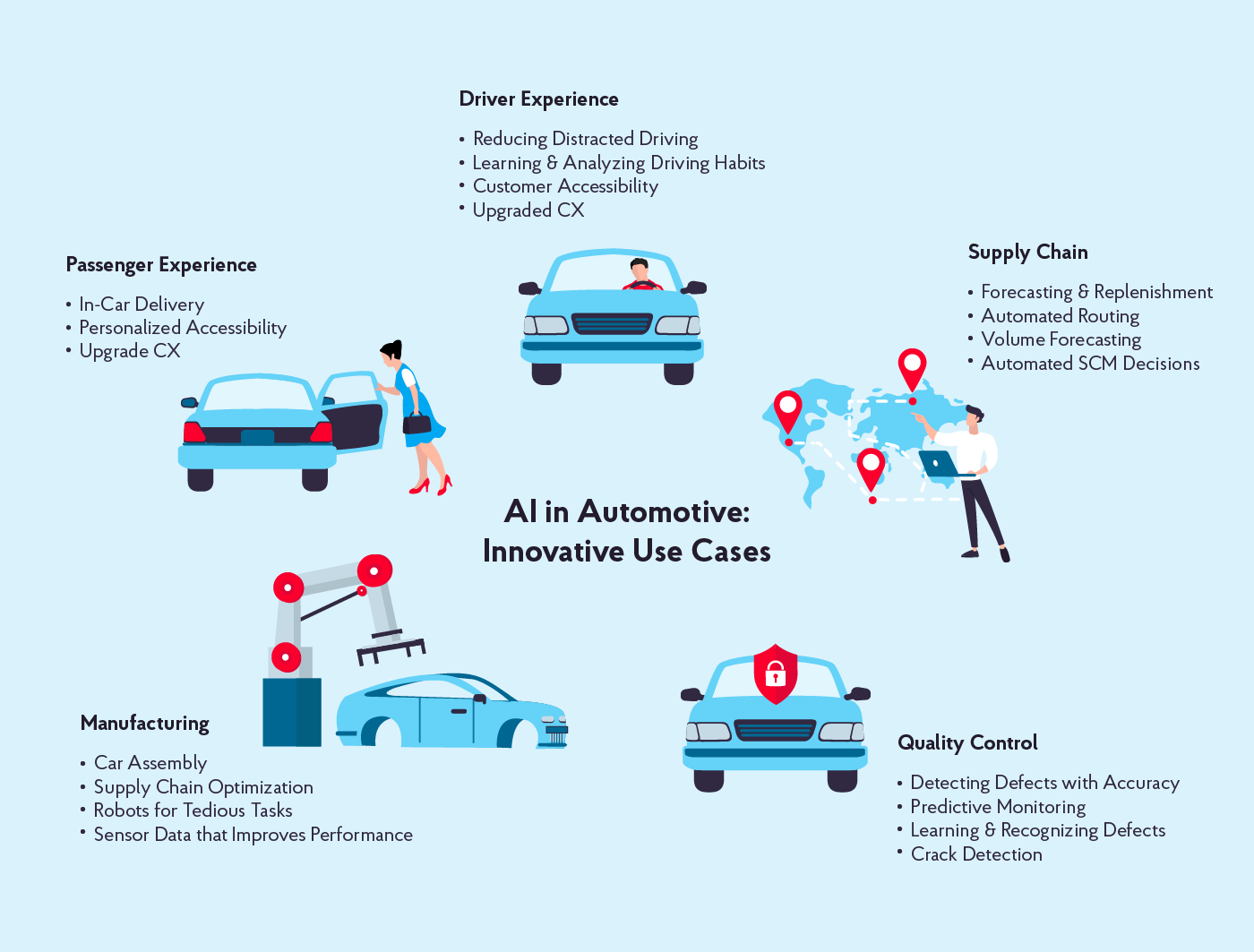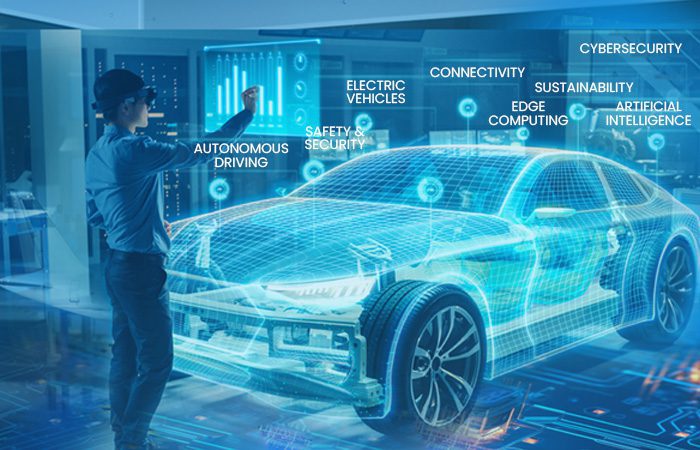AI Tools for Automotive Businesses: Enhancing Efficiency and Productivity
Table of contents
Introduction to AI in Automotive
Artificial Intelligence (AI) has become a driving force in various industries, and the automotive sector is no exception. From manufacturing and design to customer service and autonomous driving, AI technologies are reshaping the way automotive businesses operate and interact with consumers.
Understanding Artificial Intelligence
AI involves the development of computer systems capable of performing tasks that typically require human intelligence. In the automotive industry, AI encompasses a broad spectrum of applications, including machine learning, deep learning, natural language processing, and computer vision.
Application of AI in the Automotive Industry
AI is being utilized across different domains within the automotive sector. It is transforming manufacturing processes, enhancing vehicle design and development, improving operational efficiency, and revolutionizing the driving experience through autonomous vehicles and advanced driver assistance systems (ADAS).
Enhancing Customer Experience
In today's competitive market, providing an exceptional customer experience is paramount for automotive businesses. AI-powered tools enable companies to personalize marketing campaigns, create virtual showrooms and test drives, and deliver seamless customer service.
Personalized Marketing Campaigns
AI algorithms analyze vast amounts of customer data to identify trends, preferences, and behaviors. This data-driven approach allows automotive businesses to tailor marketing campaigns and advertisements to individual consumers, thereby increasing engagement and driving sales.
Virtual Showrooms and Test Drives
Virtual reality (VR) and augmented reality (AR) technologies powered by AI enable automotive companies to create immersive virtual showrooms and test drives. Potential buyers can explore different models, customize features, and experience the vehicle firsthand, enhancing the pre-purchase experience.
Improving Operations and Efficiency
Efficient operations are essential for the success of any automotive business. AI tools such as predictive maintenance and supply chain management systems help streamline processes, reduce downtime, and optimize resource utilization.
Predictive Maintenance
AI-driven predictive maintenance systems monitor vehicle components in real time, analyze performance data, and detect potential faults or failures before they occur. By predicting maintenance needs proactively, automotive businesses can minimize downtime, reduce repair costs, and optimize fleet operations.
Supply Chain Management
AI facilitates intelligent supply chain management by optimizing inventory, forecasting demand, and automating logistics processes. Predictive analytics and machine learning algorithms enable automotive companies to ensure timely delivery of parts and components, streamline production workflows, and minimize supply chain disruptions.
Enhancing Vehicle Design and Development
Vehicle design and development are crucial stages in the automotive manufacturing process. AI tools such as generative design and simulation software help engineers create innovative, efficient, and safe vehicles.
Generative Design
Generative design utilizes AI algorithms to explore numerous design options based on specified parameters and constraints. By simulating and optimizing designs iteratively, automotive engineers can create components that are lightweight, durable, and cost-effective, thereby accelerating the product development cycle.
Simulation and Prototyping
AI-powered simulation and prototyping tools enable manufacturers to simulate various scenarios, test different design configurations, and evaluate performance metrics in virtual environments. This allows engineers to identify design flaws, refine prototypes, and optimize product designs before physical production, reducing time-to-market and development costs.
AI in Autonomous Vehicles
Autonomous vehicles represent the future of mobility, and AI plays a central role in their development and deployment. From sensor fusion and perception to decision-making and navigation, AI technologies enable self-driving cars to navigate safely and efficiently in diverse environments.
Sensor Fusion and Perception
Autonomous vehicles rely on AI algorithms for sensor fusion and perception, integrating data from cameras, lidar, radar, and other sensors to interpret and respond to the surrounding environment. By analyzing sensor data in real-time, self-driving cars can detect obstacles, pedestrians, and other vehicles, making informed driving decisions autonomously.
Decision Making and Navigation
AI algorithms power the decision-making and navigation systems of autonomous vehicles, enabling them to plan optimal routes, avoid collisions, and adapt to changing traffic conditions dynamically. Machine learning techniques allow self-driving cars to learn from past experiences, anticipate future scenarios, and optimize driving behavior for efficiency and safety.
AI in Safety and Security
Ensuring the safety and security of vehicles and passengers is a top priority for automotive manufacturers. AI-driven driver assistance systems and cybersecurity solutions help mitigate risks and vulnerabilities associated with connected and autonomous vehicles.
Driver Assistance Systems
AI-powered driver assistance systems enhance vehicle safety by providing real-time alerts, warnings, and interventions to prevent accidents and mitigate risks. Adaptive cruise control, lane-keeping assist, and automatic emergency braking are examples of advanced safety features that leverage AI algorithms to monitor driver behavior and road conditions, intervening when necessary to ensure safe driving.
Cybersecurity
As vehicles become increasingly connected and autonomous, cybersecurity becomes a critical concern for automotive manufacturers. AI-based cybersecurity solutions can detect and mitigate cyber threats, vulnerabilities, and attacks targeting connected vehicles and in-vehicle systems, safeguarding sensitive data and ensuring the integrity and reliability of automotive cybersecurity.
Data Analytics and Insights
Data analytics is essential for gaining actionable insights into customer behavior, market trends, and operational performance. AI-driven analytics tools enable automotive businesses to analyze vast amounts of data and derive valuable insights for decision-making and strategic planning.
Customer Behavior Analysis
AI algorithms analyze customer data to identify patterns, preferences, and purchase behaviors, allowing automotive businesses to tailor products and services to meet customer needs effectively. By understanding customer preferences and behaviors, companies can personalize marketing campaigns, improve product offerings, and enhance customer satisfaction and loyalty.
Predictive Analytics
Predictive analytics leverages AI algorithms to forecast future trends, outcomes, and events based on historical data and statistical modeling. In the automotive industry, predictive analytics can be applied to various use cases, including sales forecasting, demand planning, inventory optimization, and risk management, enabling businesses to make data-driven decisions and stay ahead of the competition.
Challenges and Opportunities
While AI offers numerous benefits for automotive businesses, several challenges and opportunities must be addressed to realize its full potential.

Automotive businesses photo by Deblocari Auto Oradea
Data Privacy Concerns
As automotive companies collect and analyze vast amounts of customer data, concerns arise regarding data privacy and security. Protecting sensitive information and ensuring compliance with data protection regulations are essential to build trust and confidence among customers.
Integration and Adoption
Integrating AI technologies into existing systems and processes can be challenging for automotive businesses. Overcoming barriers such as legacy systems, technical expertise, and organizational resistance requires strategic planning, investment in talent development, and collaboration among stakeholders to drive successful adoption and implementation of AI-driven solutions.
Future Trends in AI and Automotive
The future of AI in the automotive industry looks promising, with several emerging trends and innovations on the horizon.

AI and Automotive photo by Deblocari Auto Oradea
Edge Computing
Edge computing enables AI algorithms to process data locally on edge devices, such as vehicles, without relying on centralized cloud infrastructure. This facilitates real-time decision-making, reduces latency, and enhances privacy and security, making edge AI a promising trend for the automotive industry.
AI Chips and Hardware
Advancements in AI chips and hardware are driving innovation in autonomous vehicles and intelligent transportation systems. Custom-designed AI chips and specialized hardware accelerate AI computations, optimizing performance and efficiency in AI applications for automotive businesses. These AI-specific chips and hardware are designed to meet the computational demands of AI algorithms, enabling faster processing speeds, lower power consumption, and enhanced capabilities for autonomous driving and advanced driver assistance systems.
As AI continues to evolve, automotive businesses must stay abreast of the latest developments and trends to remain competitive in the rapidly changing industry landscape. Embracing AI technologies offers numerous benefits, from improving operational efficiency and enhancing customer experience to driving innovation and unlocking new revenue streams.
Conclusion
AI tools have become indispensable for automotive businesses seeking to thrive in today's digital era. From personalized marketing campaigns and predictive maintenance to autonomous vehicles and advanced safety features, AI technologies are transforming every aspect of the automotive industry. By harnessing the power of AI, automotive businesses can unlock new opportunities, drive operational excellence, and deliver unparalleled value to customers.
I hope you found this article insightful and informative. If you have any questions or would like to learn more about AI tools for automotive businesses, feel free to reach out. Thank you for taking the time to read!
Visit the Pandora's Charms website for more articles.